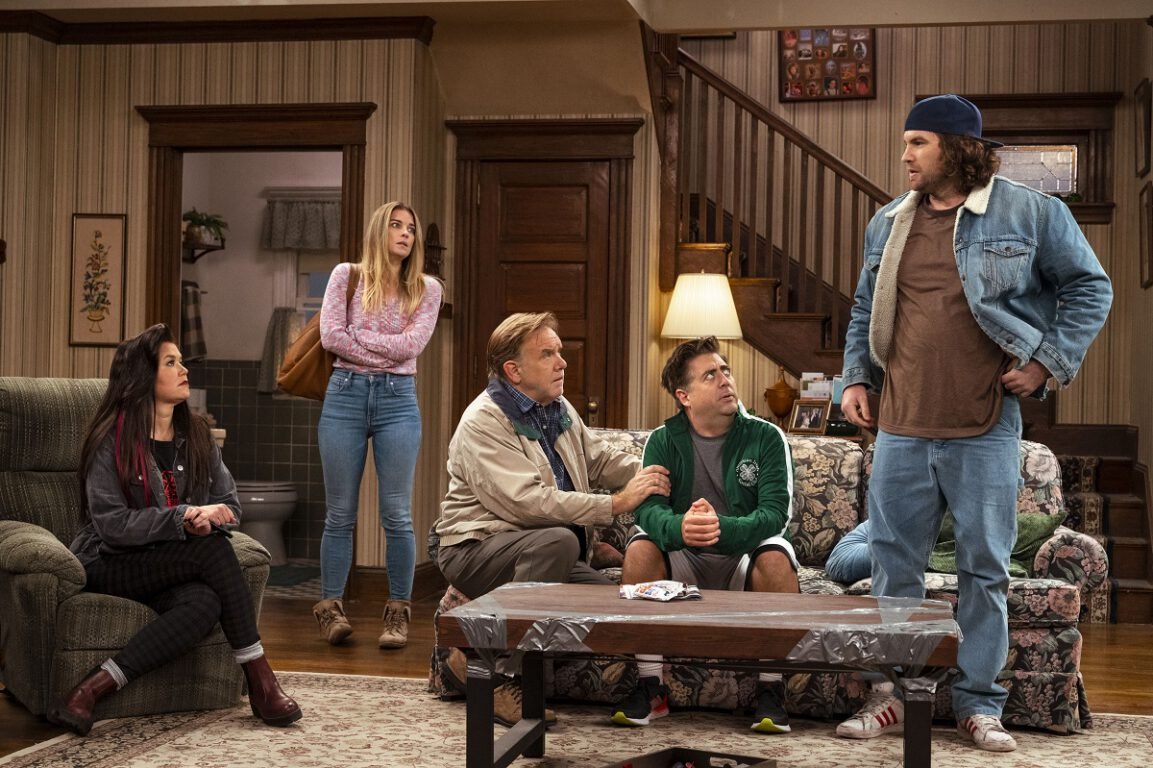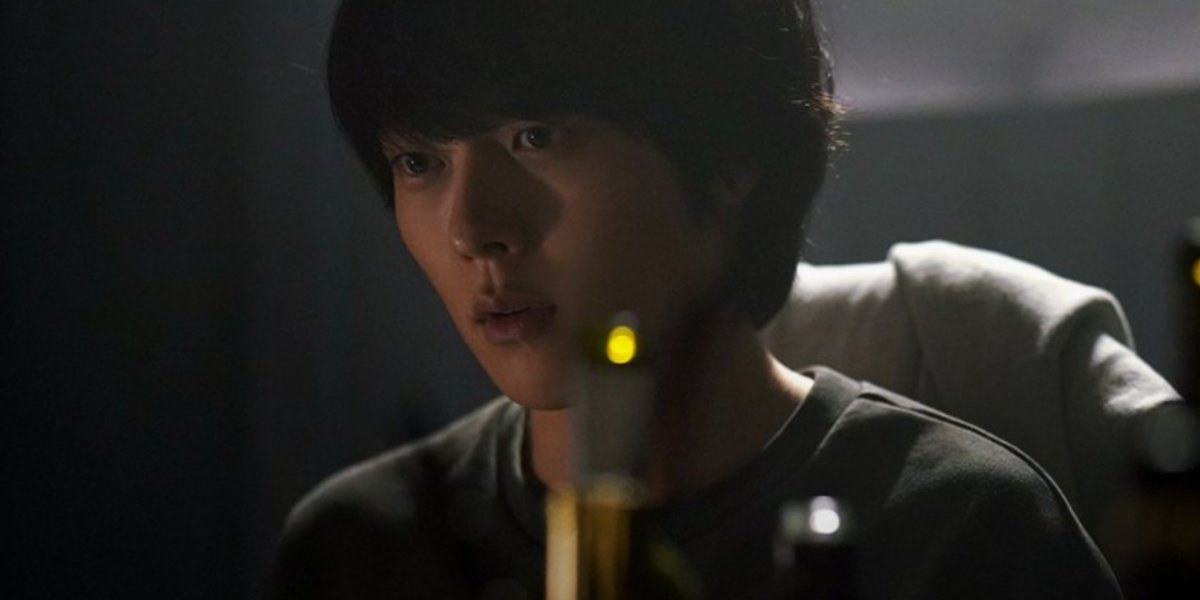
Good day of us, and welcome again to Unsuitable Each Time. With my Sailor Moon journey practically full and my roommate again from trip, we’ve spent the final two weeks binge-watching a brand new Netflix addition, the intriguing format mash-up that’s Kevin Can Fuck Himself. The present blends three-camera sitcoms and single-camera dramas to a wide range of attention-grabbing results, and left me with a pile of ideas for you all. We’ve additionally indulged in some traditional consolation meals, testing each a questionable Dolph Lundgren automobile and a superior Argento movie. We’ve bought quite a lot of ideas to go over, so let’s dive proper into the Week in Overview!
The very first thing that occurred this week was Confrontation in Little Tokyoa 1991 buddy cop movie starring Dolph Lundgren and Brandon Lee as LA cops who tackle the Iron Claw yakuza clan. Alongside the best way, they’re going to interact in some reverse Rush Hour tradition conflict shenanigans, with Lundgren’s Japanese upbringing and Lee’s American machismo making for a decidedly lukewarm back-and-forth. And finally, they’re going to must take down the chief of the Iron Claw, performed by the at all times welcome Cary-Hiroyuki Tagawa from Mortal Kombat.
Showdown in Little Tokyo is about as pure a “Mac film” as I can think about, which is to say, it’s the sort of movie beloved by the masculinity-obsessed Mac from It’s At all times Sunny in Philadelphia . Lundgren’s stoic have an effect on and absurd fight abilities border on self-parody, however he’s bought such an endearing charisma that he sells it with that winking Schwarzenegger vitality. Lee fares much less properly; although it’s billed as a buddy cop film, he’s extra sidekick than associate right here, given to providing up flattering absurdities like “I gotta say, you might have the most important dick I’ve ever seen.” And naturally, Tagawa is at all times glorious, consuming up the surroundings as greedily as he does in his varied preventing recreation and comedian ebook diversifications.
The movie is self-assuredly inconsistent, which I don’t contemplate a flaw, nevertheless it sadly lacks the staging and choreography that might earn it a stable advice. Lundgren and Lee are each gifted fighters, however they’re given little to work with right here; their fights are basically high-kick brawls, missing the bodily poetry of an incredible motion or martial arts movie. It’s fairly endearing to observe Lundgren conjure up a mixture of “hey babe” machismo and samurai philosophy, however with its underwhelming motion sequences, Showdown in Little Tokyo is extra of an intriguing artifact than a profitable method.

We then checked out Darknessa 1982 Dario Argento movie starring Anthony Franciosa as Peter Neal, an acclaimed author of homicide thriller fiction. Whereas in Rome selling his new ebook, Neal turns into embroiled within the hunt for a serial killer who appears impressed by the violence in his novels. Because the our bodies pile up, the strains between fiction and actuality start to blur, and the facility our tales have over society is known as into query.
After constructing his popularity with giallo homicide thriller movies, Argento moved on to straight-up fantasy horror with the magnificent Suspiria and Inferno . Tenebrae served as his return to the style that made him, and was really impressed by real-life accusations in regards to the psychological results of his violent tales, culminating in real-life demise threats. In reality, when Peter Neal is requested why he feels the necessity to “punish deviants” along with his fiction, it’s Argento who offers the exasperated response of “why do you assume I agree with the villains in my tales?”
Tenebrae’s metatextual frustration is one among its most compelling options, however there’s loads extra to take pleasure in in Argento’s assured return residence. His eye for inherently menacing bodily geography is as sharp as ever; Tenebrae options lots of the slow-burn traverses of corridors, basements, and alienating metropolis streets that lend options like Suspiria such a menacing ambiance, even when the lighting design lacks the otherworldly affect of his fantasy options. A number of members of Goblin additionally return to attain the movie, leading to a lot of putting sequences pushed completely by menacing melodies, with the digital camera merely hovering over a suggestion of violence. And a number of other homicide scenes stand out, with one that includes John Saxon impressing along with his potential to create horror regardless of being set in a brightly lit metropolis sq.. I used to be really reminded of The Dialog, which equally shrouded a busy metropolis sq. in a veil of thriller and menace.
If Tenebrae lacks something, it is focus and momentum. Regardless of the overarching urge to catch the killer, there’s little lively investigation right here; the killer simply does what he needs whereas the opposite gamers wander round fruitlessly, that means the movie usually feels just a little aimless. The metatextual layer can be so distinguished that it textual drama; I by no means felt as afraid of Neal or his collaborators as I did of the gamers in Phenomena or Deep Crimson, as a result of they felt extra like positions in an instructional argument than folks. And at last, whereas there are outliers, the kills right here can’t match the consistency of ingenuity or magnificence in his absolute strongest options. Nonetheless, all of that is to say that Argento is admittedly solely competing with itself right here; Tenebrae is an total glorious manufacturing.

Along with our movie screenings, we even have the 2 seasons of Kevin can fuck himselfa putting style mash-up that just lately jumped from AMC+ to Netflix. Annie Murphy performs Allison McRoberts, the weary and intimidated spouse of the titular Kevin. Kevin’s life is framed like a three-camera sitcom modeled fairly explicitly on Kevin Can Wait; he’s a loudmouthed, always-joking man-child who guidelines the lounge along with his dad and greatest pal, and is at all times scheming and as much as new antics along with his greatest associates. Allison’s position in are The lead position is reserved for the ever-nagging spouse, however when she closes the door to his area, the lighting modifications to muted tones, the cinematography modifications to a single-camera drama, and the loopy antics are changed by the compelling query of escape her horrible, horrible life.
The present’s gimmick is a intelligent conceptual flourish constructed from a basic emotional fact: The lads who dominate a sure model of traditional American sitcom are, the truth is, abusive, manipulative monsters, and any life constructed on the periphery of their megalomania shall be impoverished by their presence. As Kevin engages in episodic antics like “competing with my greatest pal in a chili cook-off,” Allison discovers that he’s squandered their life financial savings, struggles to attach with returning associates, and finally succumbs to a Breaking Unhealthy -esque plot to homicide her husband outright. Plans escalate, extra objects escape Kevin’s gravitational pull, and the style’s central distinction barely holds up over two seasons of contrasting Kevin and Allison’s twin worlds.
I am going to admit, once I first began watching this sequence, my preliminary response was, “This could in all probability be a film.” And truthfully, after two seasons, nonetheless assume it ought to have been a film; the showrunners discover some attention-grabbing wrinkles of their episodic concepts, however the idea simply can’t maintain full seasons of real emotional drama. Consequently, there’s quite a lot of circling and false begins concerning the “kill Kevin” plot, new characters are launched to shake issues up, and the core relationships of Kevin, Allison, and their neighbor Patty are padded out to emotionally damaging impact.
Curiously, this means of stretching out the drama raises a second, in all probability unintended takeaway: the comparative unreality of Allison’s Breaking Unhealthy world, which is not any much less audience-centric or formulaic than Kevin’s, regardless of its lack of fun monitor. Status dramas don’t actually depict actuality; they depict a dramatically heightened actuality wrapped in forty-minute tales through which characters virtually at all times escalate conditions, conversations lack the center floor of sunshine communication that separates practical dialogue and emotional catharsis, and threats of the top of the world solely look like neatly handled earlier than the credit roll. By instantly contrasting Kevin’s and Allison’s worlds, Kevin Can Fuck Himself seemingly inadvertently articulates why I don’t discover American “status TV” dramas notably attention-grabbing; they’re designed to be an endlessly reproducible sequence of self-indulgent forty-minute thrillers, and that simply doesn’t enchantment to me.
Nonetheless, there’s loads else to take pleasure in, notably within the glorious performances from Annie Murphy, Mary Hollis Inboden (Patty), and Eric Petersen (Kevin). Petersen does a flawless and thankless job of embodying the grotesqueness that’s the traditional sitcom dad, wielding his infinite confidence and earnest charisma with ruthless ability whereas concurrently seeming to “say what everybody’s considering.” The floor texture of “group-instigating antics” that crumbles right into a clear-cut portrait of manipulation and abuse is the present’s handiest long-term undertaking; it’s straightforward to see how Kevin exploits an assumption of group consent to maintain his victims in line, and it’s deeply satisfying to observe one after one other of his former associates understand that their lives could be higher off with out this hateful, narcissistic man on the heart.
As for Murphy and Inboden, their chemistry is great, regardless of each enjoying awkward, delinquent folks, and Inboden’s expressionless supply is liable for lots of the present’s greatest strains. I additionally actually favored the rising philosophy of life the 2 espoused, as they tried to search out solace within the mess left by an extra or lack of non-public ambition. Even supposedly critical dramas usually place quite a lot of worth on the hope of “escaping all of it and turning into our greatest selves some place else” – Kevin Can Fuck Himself understands that such hopes should not solely unrealistic, however can usually result in whole dissatisfaction with the lives we lead Truly life. With its protagonists approaching 40 and the longer term wanting very like the previous, the present as an alternative gives a philosophy of measured hope and small victories. “I don’t wish to reinvent myself. This needs to be sufficient. I “needs to be sufficient,” Allison declares at one level. In the meantime, Patty desires of “smoking a cigarette on my stoop and never worrying about anybody else’s issues.” Their hard-won delight in being themselves felt quietly profound to me, a essential counterbalance to the aspirational false safety of a lot TV drama. If we are able to escape the Kevins of the world, we’ll in all probability be okay.




